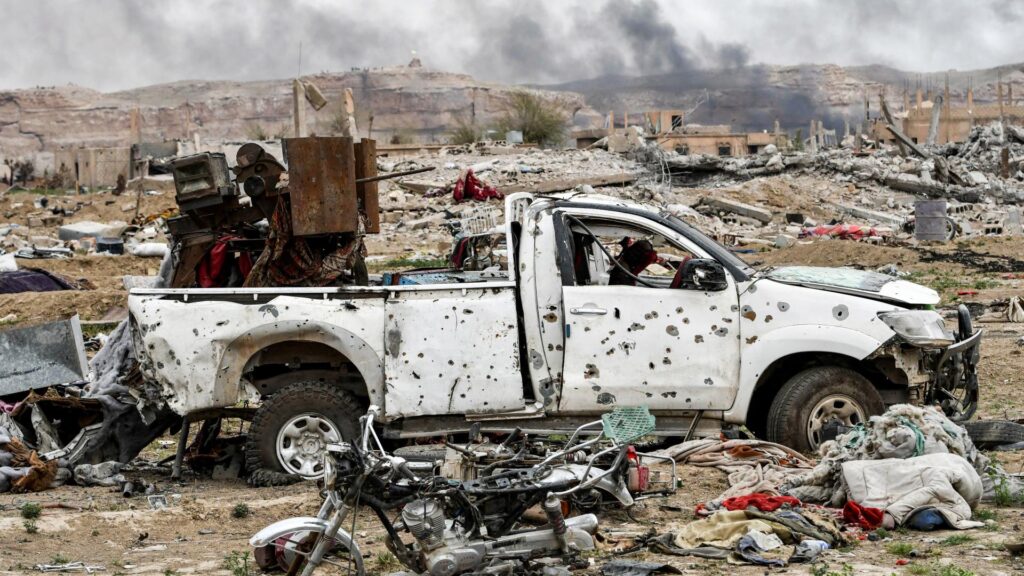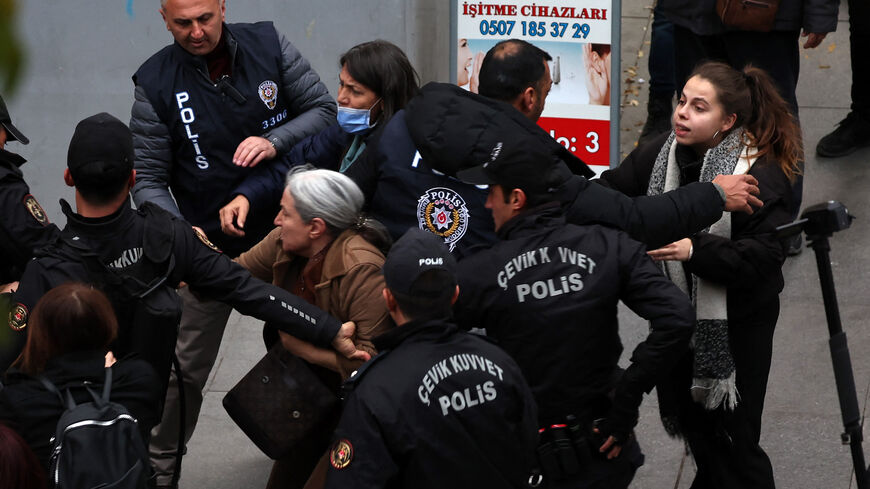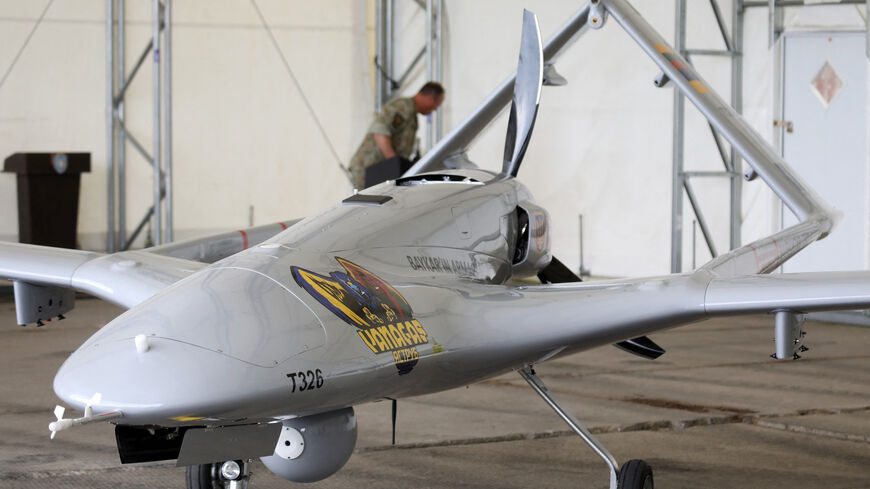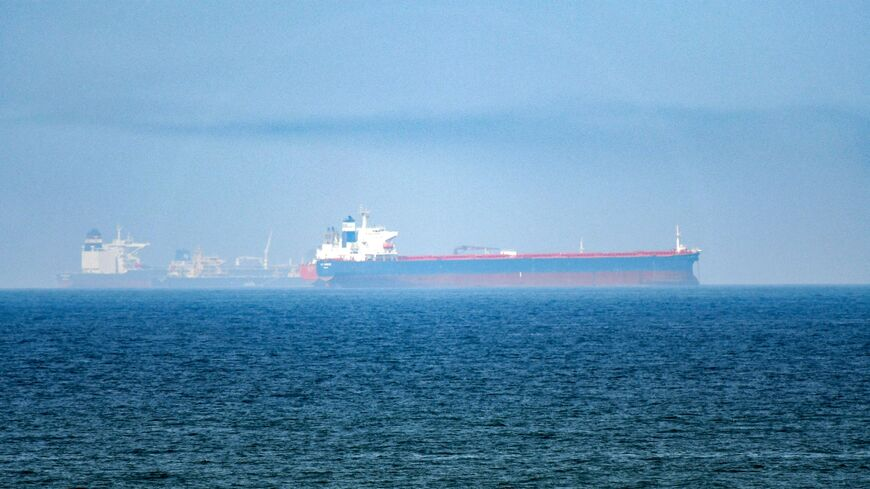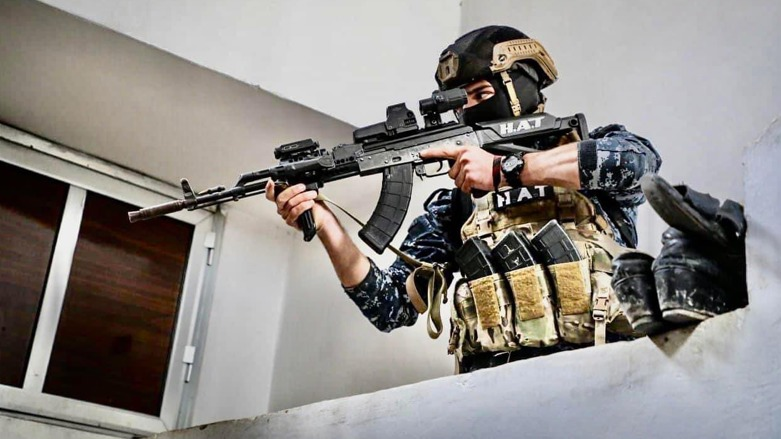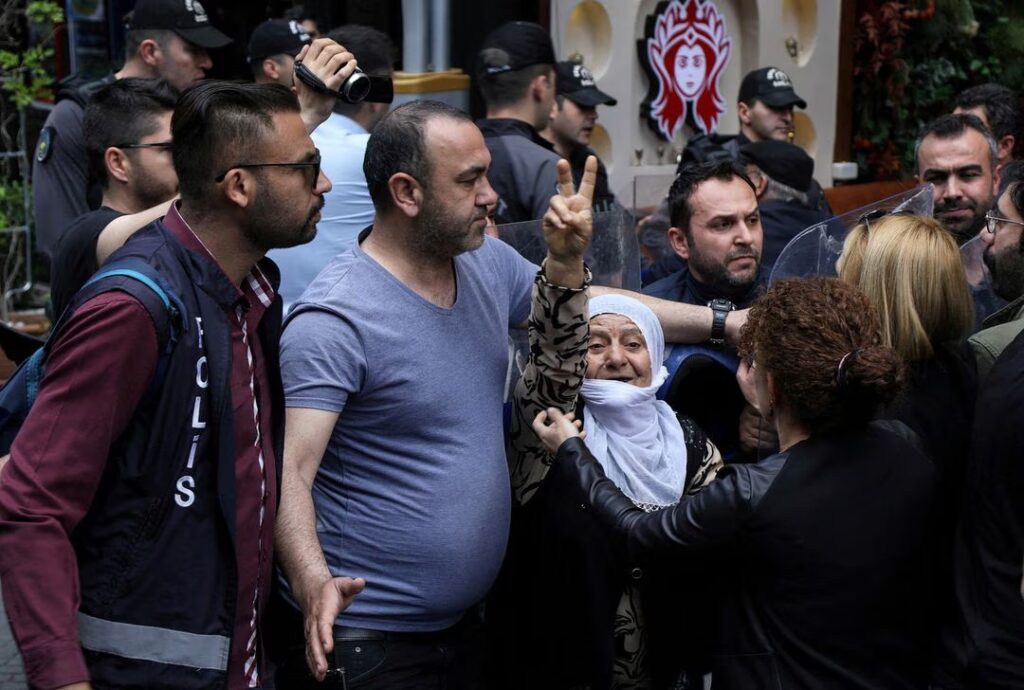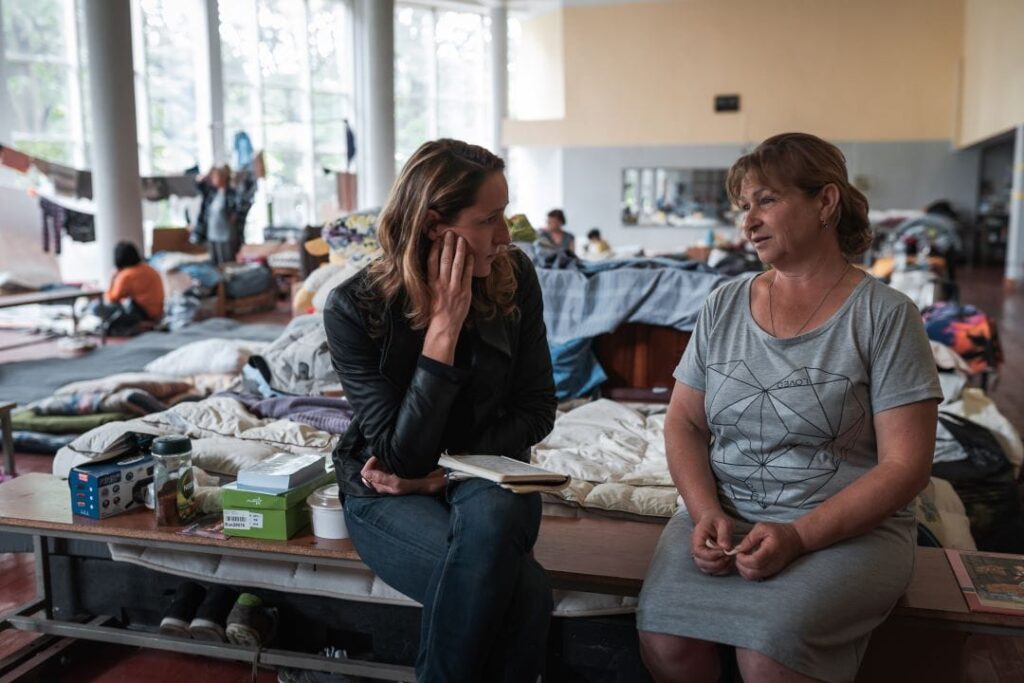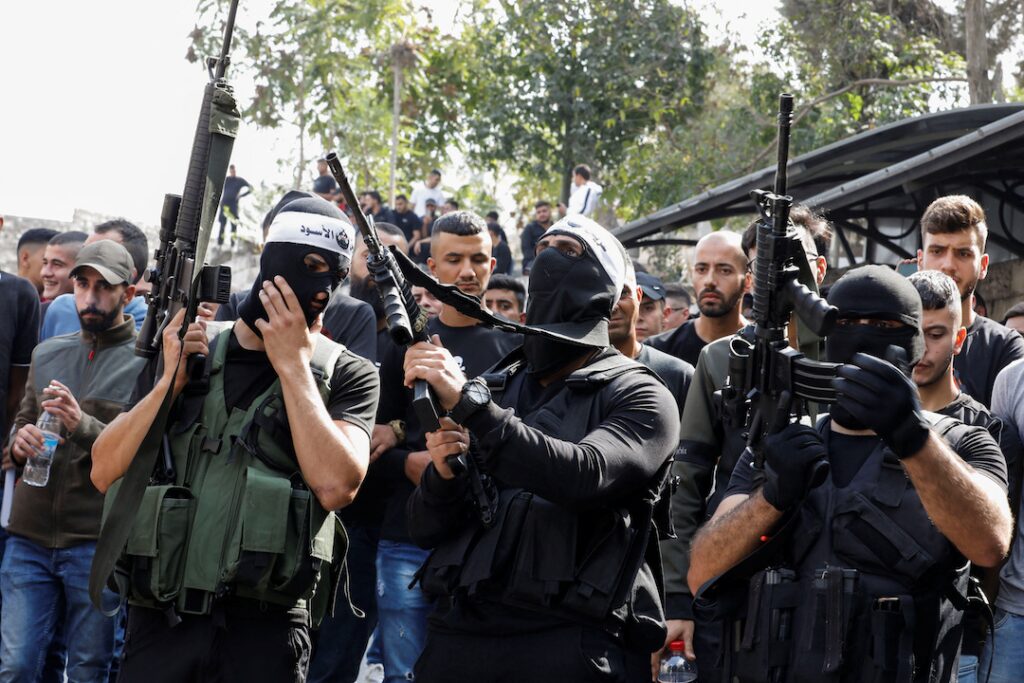
Large-scale emigration from the Middle East and North Africa to the Global North exploded following the turmoil of the 2011 Arab Spring uprisings, upending and substantially disrupting politics in both regions. While the primary driver of this displacement in MENA and adjoining areas has heretofore been economic upheaval, conflict, and civil wars — including in Syria, Yemen, Libya, Afghanistan, and the Sahel countries — over the coming decades, climate change will increasingly contribute to transborder refugee flows.
The scale of regional refugee flows
The United Nations High Commissioner for Refugees (UNHCR) estimates that forced displacement around the world reached 103 million in mid-2022, 53 million people remain internally displaced, while 5.3 million people need immediate international protection. Of these many tens of millions compelled to flee their homes for reasons ranging from conflict to famine to economic collapse, approximately 21 million people around the world have, since 2008, been forcibly displaced by extreme weather events caused in part by climate change. In the MENA region, during 2021 alone, nearly 3 million people were forced to leave their homes due to natural disasters and climate induced events. These people are essentially climate refugees.
Climate as a growing factor
Warming temperatures, droughts, and destructive sandstorms are some of the realities that await the MENA region in the next half-century. Rising temperatures will exacerbate already harsh climates, making some parts of the region uninhabitable and forcing residents to either adapt or leave. States already embroiled in conflicts, such as Syria and Yemen, will likely see even more emigration; while a sharp influx of refugees from neighboring areas would put further pressure on the state structures of poorer transit or destination countries in the region, such as Lebanon and Jordan, themselves among the most water-stressed nations on Earth. A 2017 World Bank study notes that the Gulf states will also face increasingly depleted water supplies in the next 50 years. Water scarcity could potentially cost countries across the region 6-14% of their GDP, affecting a wide range of industries. For example, production from Egypt’s agricultural sector could potentially fall by up to half by 2060. An unfortunate truth that we are beginning to see play out is that those who contributed least to climate change are the ones now being impacted by it first. The people of the Middle East are already at the forefront of this crisis, facing problems like declining access to clean drinking water and an increasing prevalence of severe heat waves.
In institutionally weak states, water scarcity can force people to move from the countryside to urban centers, further intensifying financial pressure on municipal and national governments to provide these increasingly crowded metropolitan areas with sufficient state services. High levels of water scarcity could additionally incite the outbreak of intra-state conflict and provide fruitful ground for terrorism and sectarian violence to flourish, as parties and factions compete for resources such as food and water that embattled governments fail to provide for their own citizens. States like Lebanon and Syria, with their already degraded physical infrastructure and social services, will be at the forefront of this terrible new reality. Illustratively, Syria in 2006 underwent a devastating and prolonged drought that pushed many rural residents into its cities. The government’s inability to cope with this influx exacerbated existing issues like corruption and lack of jobs, in turn contributing to the socio-economic factors that eventually led to the 2011 Arab Spring uprising in that country.
The migrant impact
As climate change continues to worsen, those displaced from MENA will seek to immigrate to richer economies in the north, especially in neighboring Europe, at even higher rates, putting to the test the ability of European countries to absorb possibly millions of new migrants and refugees. Indeed, the millions fleeing conflicts across the broader Middle East and Africa over the past decade have already dramatically affected socio-political dynamics across Europe, including in France, Italy, and Sweden. Increased immigration waves from the Global South impacted many of these nations’ voting patterns and political leanings, resulting in governments with hardline stances on immigration, like in Hungary and Italy. And millions more, fleeing war, have entered the European Union from Ukraine since early 2022, putting additional financial strain on local state services and safety nets.
Many migrants have arrived in European countries via asylum grants, a status under international law signifying that a person can no longer survive in his or her own country of origin. This admissibility for asylum, however, is not applicable to climate refugees, even though some estimates suggest that by 2050, 1.2 billion people will be displaced by intensifying climate and weather events. According to the definition established in the 1951 UNHCR Refugee Convention, a refugee is “someone who is unable or unwilling to return to their country of origin owing to a well-founded fear of being persecuted for reasons of race, religion, nationality, membership of a particular social group, or political opinion.” This definition notably does not encompass the destruction of one’s home due to unlivable conditions caused by climate change. As such, climate refugees cannot claim asylum under any recognized international law, on the one hand leaving them with little to no access to legal protection and, on the other hand, forcing state institutions in the Western world and beyond to navigate this legal gray area and improvise a workable response.
International advocates have consistently called on the United Nations to amend the formal, 72-year-old definition of a refugee to include climate-displaced persons. While this would help those vulnerable individuals fleeing their homes because of the worsening effects of climate change, it would do little to mitigate the problem at its source. Moreover, to build political will and reach international consensus on the need to amend the definition, refugee recipient countries would likely require substantial financial incentives to voluntarily comply and open their borders to this wave of new climate asylees. As a result, the already cumbersome task of updating international refugee law may need to be accompanied by a multi-billion-dollar global fund to support migrant processing and resettlement. The Green Climate Fund, which was signed by 194 countries, amassed $10 billion in 2021 and could serve as a potential blueprint for how a climate migrant assistance fund could be administered at the supranational level — although a politically difficult sticking point may be that much of this financial support would go to wealthier recipient countries in the Global North.
How can we begin to manage this?
To avert such a monumental looming problem requires pragmatic solutions and their swift implementation. Climate change is already upon us, but there are ways to prepare for the migrant crisis that comes with it.
This year’s U.N. Climate Change Conference (28th Conference of the Parties, COP28) will, fittingly and for the second year in a row, take place in the Middle East. While COP27, held in Sharm el-Sheikh, Egypt, concluded with major breakthroughs in loss and damage financing for vulnerable countries, there is still more work to be done on adaptation and mitigation measures. The West has a choice: It can assist climate-distressed countries with adaptation efforts in the short to medium term or face a larger global refugee crisis in the long term. Helping to rebuild destroyed communities ravaged by climate change effects is one option to minimize future refugee flows from those areas, and Western governments can assist in financing the construction of improved “climate-proof” infrastructure in vulnerable MENA countries. This can notably be done in tandem with oil-rich Gulf states and presents an excellent opportunity for further diplomatic and economic cooperation between Western and Middle Eastern countries.
Additionally, refugee-recipient countries could amend their own internal asylum/refugee systems. Increasing funding and overhauling outdated migration processing mechanisms will be crucial in managing the northward flows of climate-displaced people. If more funding for climate change adaptation is not allocated effectively, asylum processes are not modernized in both the Global North and South, and international law regarding asylum status remains unchanged, the expected surge in migrants fleeing climate change will put a critical strain on destination and transit countries. This would be incredibly destabilizing not only for rich states struggling to manage the massive influx of migrants but even more so for poorer countries entirely lacking the infrastructure to assist these refugees trying to pass through.
In the Middle East specifically, Turkey is a pivotal stopgap for Europe-bound migrants coming from conflict zones such as Syria and Yemen as well as crisis-wracked states like Lebanon, but it could easily revert to an important transit route as climate conditions in MENA worsen. In 2015, at the height of the European refugee crisis, over 1 million refugees fled to Europe, more than 800,000 of which travelled through Turkey, driven from their homes by conflict, poverty, and persecution. Brussels subsequently reached an agreement with Ankara in early 2016, under which the Turkish authorities would block the migrant traffic and house refugees on Turkish soil in return for a 6 billion euro assistance package. But in the future, as ever more MENA refugees attempt to escape the dangerous effects of climate change in their home countries, the spike in Europe-bound migration may once again spill over into the trans-Anatolian route, potentially overwhelming the Turkish authorities and the country’s resources.
Ultimately, even if countries can meet the carbon emissions-reduction targets outlined in the 2015 Paris Agreement and subsequent accords, some of the impacts of climate change are already here, and the world collectively needs to adjust. Pacific nations such as Kiribati and Tuvalu have already begun preparing for their lands to disappear under water. But in addition to improving adaptation and mitigation measures across the Global South, governments should be prepared to reform national immigration processes to manage an impending rise in climate refugees. It is time for the world to deal with the fact that climate displacement may soon increasingly impact the socio-economic and demographic realities of the wider MENA region. After all, the effects will not remain localized. The fallout will also be felt by the countries that receive growing numbers of climate refugees.


